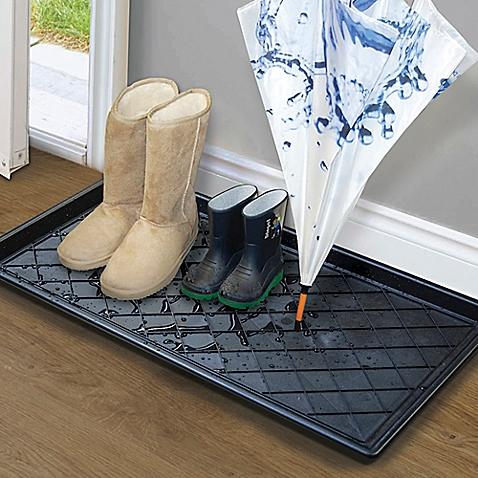Sometimes, it’s nice to have at least a little moisture in the air. Between the annoying static electricity, the itchy flakey skin, and sudden nosebleeds, indoor dryness can get a wee bit annoying — and that’s not even the worst of it. In some pretty bad cases, the lack of air moisture can dry out mucus membranes, which can lead to colds, the flu, and other respiratory infections.
Dry air may initially seem like a mere inconvenience, but given the right factors it can get just downright hazardous — especially for those of us who live in the sticks and are a long drive to a doctor’s office.
Which brings me to the main reason why I decided to discuss this topic in the first place: Dry air is often a very common nuisance on a homestead. From the late fall to early spring, homesteaders continually rely on that trusty wood or coal furnace — and those have a way of just sucking the moisture right out of the air.
So here’s an interesting solution to this arid conundrum, and honestly, I didn’t realize just how simple it really was. But first, we should address: Why not just go and purchase an actual humidifier contraption? Well, a few glaring issues come to mind …
“The Big Book Of Off The Grid Secrets” — Every Homesteader Needs A Copy!
While standard retail humidifiers certainly can be quite useful in more urban settings, these things can cause major problems on a homestead:
- Humidifiers use electric-powered pumps and fans. Since electricity is often in short supply, a homesteader will have to add that cost to the energy budget. Solar panels can only supply so much power, and humidifying the air may not necessarily be on the list of top energy priorities.
- Homesteaders cannot afford to risk compromising their air quality, because they are incredibly dependent on maintaining good health for people and animals. However, even if a humidifier reservoir is cleaned regularly, those darn things can still build up mold and bacteria inside their internal components.
- Humidifiers usually require filters that will wear out and need to be replaced, and since Walmart is not likely going to be a mere stone’s throw distance away … well, that’s just another thing we don’t want to purchase on the monthly run to town.
Here’s What to Do
Which brings me to why I’m confused that humidifiers even exist, because apparently, a simple boot tray is actually a better humidifier than those contraptions that they sell on store shelves. Here’s how it works:
- Grab a large boot tray that’s, say, at least three feet across and a foot wide. (Seriously, it’s an arbitrary dimension. As long as it can hold about a gallon of water, you’re good to go.)
- Fill it with water.
- Place it under your wood stove or bed, and just let it sit there …
- … Because, well, water evaporates.
And with that, you’ve just solved your dry air problem without using electricity, cleaning a store-bought one, or stocking up on filters.
The boot tray humidifier, depending on how dry the air happens to be, can go through about a gallon of water every three to four days. That’s a gallon of evaporated water in less than a week, which somehow outpaces most retail humidifiers.
https://youtu.be/ZtbMmcIBnoM
So it seems that at the end of the day, we don’t always have to overthink these things, because it might all just come down to a tray full of water that keeps us from nosebleeds and coughing up a lung. Just remember to refill it every so often, especially if the dog keeps thinking he owns the world’s biggest dog bowl.
How do you keep your air humid during cool weather? Share your tips in the section below:
Harness The Power Of Nature’s Most Remarkable Healer: Vinegar
 Off The Grid News Better Ideas For Off The Grid Living
Off The Grid News Better Ideas For Off The Grid Living





